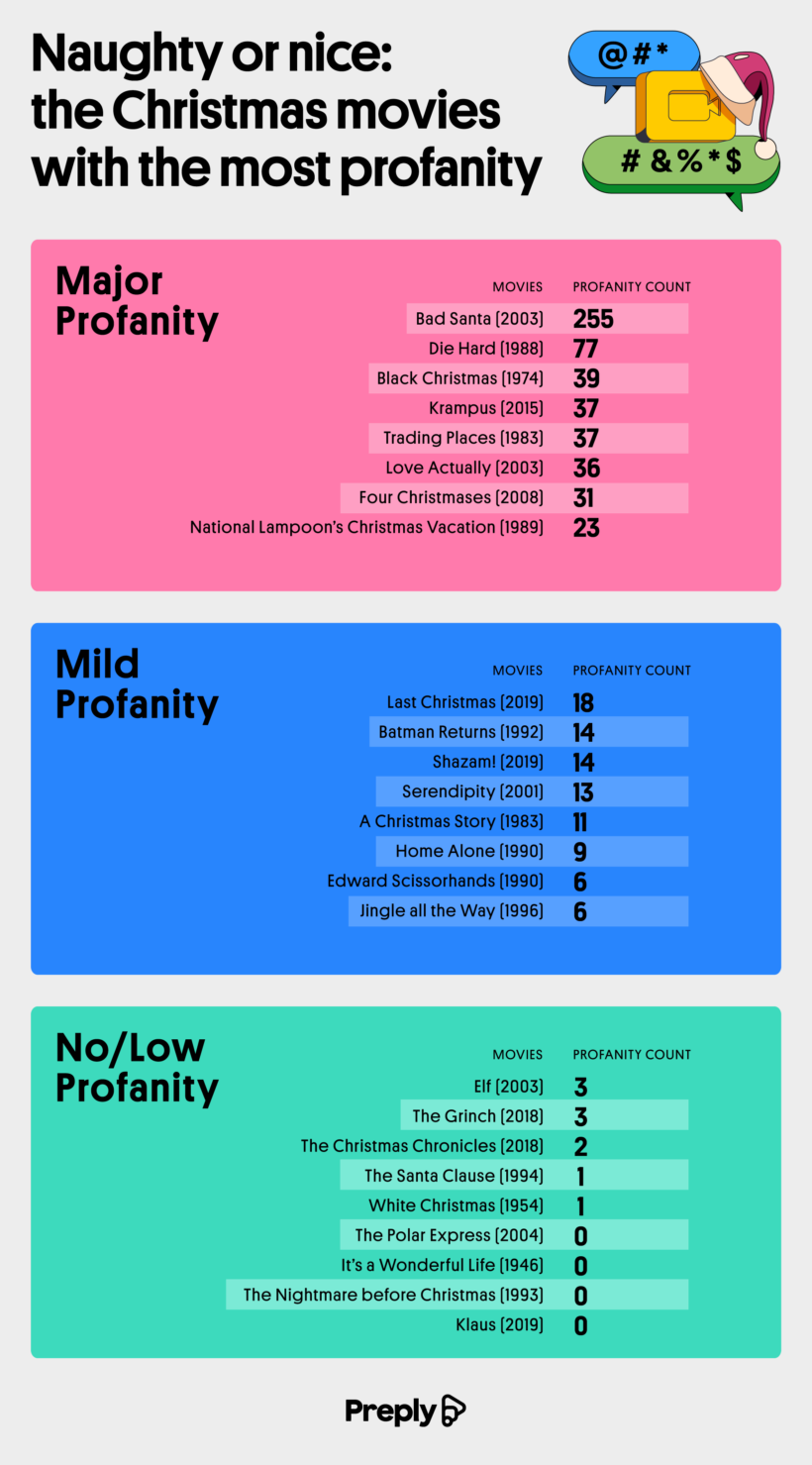The Power Of Profanity In Christmas Storytelling: Exploring The Use Of "F-Word" In Festive Narratives
The Power of Profanity in Christmas Storytelling: Exploring the Use of "F-Word" in Festive Narratives
Related Articles: The Power of Profanity in Christmas Storytelling: Exploring the Use of "F-Word" in Festive Narratives
Introduction
With enthusiasm, let’s navigate through the intriguing topic related to The Power of Profanity in Christmas Storytelling: Exploring the Use of "F-Word" in Festive Narratives. Let’s weave interesting information and offer fresh perspectives to the readers.
Table of Content
The Power of Profanity in Christmas Storytelling: Exploring the Use of "F-Word" in Festive Narratives

The Christmas season, often associated with warmth, joy, and family, can also be a time of immense pressure and conflicting emotions. This complex tapestry of feelings is often reflected in the narratives we create and consume during this time of year. While traditional Christmas stories typically focus on themes of generosity, forgiveness, and hope, some contemporary works delve into the darker, more realistic aspects of the holiday, employing unconventional language, including the use of the "F-word," to achieve greater authenticity and impact.
This exploration seeks to understand the significance of using the "F-word" in Christmas stories, examining its potential to enhance narrative depth, challenge traditional expectations, and resonate with a wider audience.
The "F-Word" as a Tool for Authenticity and Realism
The "F-word," while considered taboo in many contexts, can serve as a powerful tool for writers seeking to portray characters and situations with unfiltered honesty. In the context of Christmas stories, its use can:
- Reflect the complexities of human emotion: The holiday season, despite its outward cheer, can be a time of stress, financial strain, and family conflicts. The "F-word" can authentically capture the raw emotions of characters grappling with these challenges, providing a more realistic portrayal of their experiences.
- Break down societal expectations: Traditional Christmas stories often present an idealized version of the holiday, where everyone is happy and harmonious. The use of the "F-word" can challenge these expectations, exposing the cracks in the idyllic facade and showcasing the messy, complicated realities of human relationships.
- Create a sense of immediacy: The "F-word" carries a strong emotional weight and can evoke a sense of urgency and immediacy in the narrative. This can be particularly effective in moments of heightened tension or conflict, intensifying the reader’s engagement with the story.
Challenging Traditional Narratives and Expanding the Audience
By incorporating the "F-word," Christmas stories can push boundaries and challenge the traditional, sanitized portrayal of the holiday. This can:
- Attract a wider audience: The use of unconventional language can make a story more relatable to a contemporary audience, particularly those who may be disillusioned with the idealized version of Christmas often presented in popular culture.
- Spark critical reflection: The "F-word" can act as a catalyst for discussion and reflection on societal norms and expectations surrounding the holiday season. This can lead to a deeper understanding of the complexities of the holiday and its impact on individuals and families.
- Promote inclusivity: By embracing a more realistic and nuanced portrayal of Christmas, these stories can resonate with a wider range of individuals and families, including those who may not traditionally identify with the traditional narratives.
The Importance of Context and Intention
It is crucial to emphasize that the use of the "F-word" in Christmas stories, like any other form of language, should be deliberate and purposeful. It should not be used gratuitously or solely for shock value. The effectiveness of the "F-word" lies in its ability to enhance the narrative, contribute to character development, and deepen the reader’s understanding of the story’s themes.
FAQs on the Use of the "F-Word" in Christmas Stories:
- Is it appropriate to use the "F-word" in a Christmas story? The appropriateness of language depends on the context, intended audience, and overall tone of the story. If used strategically and with intention, it can enhance authenticity and impact.
- What are the potential risks of using the "F-word" in a Christmas story? There is always a risk that the use of strong language may alienate some readers or be perceived as offensive. It is crucial to consider the target audience and the potential impact of the language choice.
- How can writers use the "F-word" effectively in a Christmas story? The "F-word" should be used sparingly and only when it serves a specific narrative purpose, such as revealing a character’s true emotions or creating tension in a scene.
Tips for Using the "F-Word" Effectively in Christmas Stories:
- Consider the context: The "F-word" should be used in situations where it feels natural and authentic to the characters and the story’s overall tone.
- Use it sparingly: Overuse of strong language can become repetitive and detract from the story’s impact.
- Focus on the impact: The "F-word" should be used to create a specific effect, such as highlighting a character’s frustration or emphasizing the intensity of a moment.
Conclusion
The use of the "F-word" in Christmas stories presents a unique opportunity for writers to challenge traditional narratives, explore the complexities of the holiday, and connect with a wider audience. By employing this unconventional language strategically and with intention, writers can create stories that are both authentic and impactful, offering a more realistic and nuanced portrayal of the Christmas season. It is through this exploration of the unconventional that we can deepen our understanding of the holiday and its enduring relevance in our modern world.








Closure
Thus, we hope this article has provided valuable insights into The Power of Profanity in Christmas Storytelling: Exploring the Use of "F-Word" in Festive Narratives. We appreciate your attention to our article. See you in our next article!